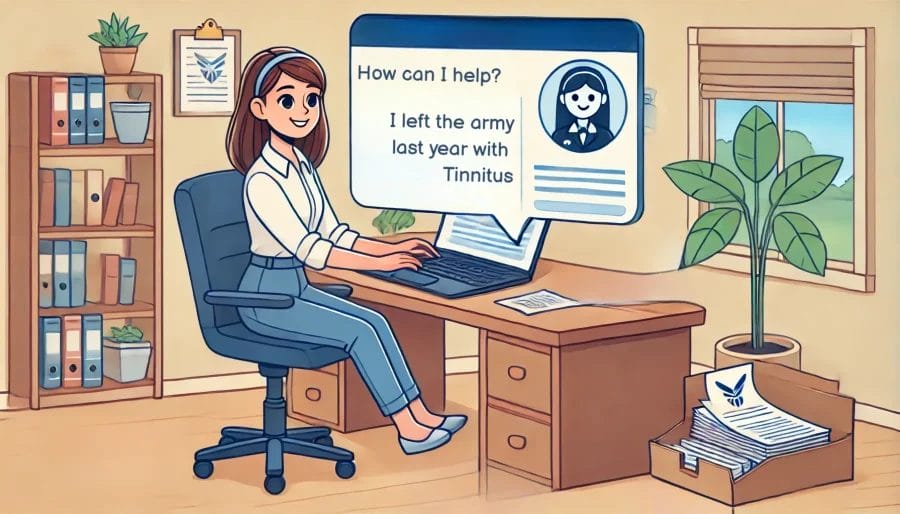Understanding how long does a deferred VA claim take is crucial for U.S. veterans navigating the complex landscape of benefits and support.
A deferred VA claim occurs when the Department of Veterans Affairs (VA) decides to postpone the decision on a claim due to the need for additional evidence or information. Knowing the typical timeframe for such claims can help veterans manage their expectations effectively.
What is a Deferred VA Claim?
A deferred VA claim is a situation where the VA has acknowledged a veteran’s claim but has decided to place it on hold for various reasons. This deferment can happen when the VA requires further documentation, medical evaluations, or clarification on certain aspects of the claim. Although a deferred claim might feel like a setback, it is often intended to ensure that the VA has all necessary information before making a final decision. Understanding how long does a deferred VA claim take involves recognizing that the duration can vary based on several factors, which we will explore in detail.
It could even mean they will move certain claims forward to decide on them to make those claims faster, while still working on other claims. This case could benefit the veteran.
Factors Affecting the Duration of Deferred VA Claims
Several factors can influence how long a deferred VA claim takes to process. Here are some key elements that veterans should consider:
1. Complexity of the Claim
The complexity of a claim plays a significant role in determining its processing time. A straightforward claim might resolve quickly, while claims involving multiple service-related conditions or extensive documentation may take longer. Understanding how long does a deferred VA claim take requires considering the specifics of the individual situation.
2. Required Documentation
Submitting comprehensive and accurate documentation is essential for expediting the claim process. Veterans must ensure that they provide all relevant medical records, service records, and any other necessary documents with their initial claim. If additional records are needed after the claim is deferred, the time taken to gather and submit these documents can prolong the process.
3. VA Workload
The workload of the VA can significantly affect how long a deferred VA claim takes. During peak periods—such as after major policy shifts or in response to crises affecting veterans—the backlog of claims can increase, leading to longer processing times. Consequently, understanding how long does a deferred VA claim take requires awareness of current VA conditions.
4. Regional Differences
Processing times can also differ based on geographic location. Different VA regional offices may have varying procedures, staffing levels, and workloads. As a result, veterans in some areas might experience longer wait times for a deferred VA claim than those in others.
AI Powered Chatbot for VA Disability Claims
Learn more about the VA Disability process and get help with our VA Disability Claim Chatbot programmed and trained by AI

Typical Timeframes for Deferred VA Claims
While it is challenging to provide a definitive timeframe for how long does a deferred VA claim take, there are general statistics that can offer some guidance. On average, veterans may expect a deferment to last anywhere from a few months to over a year. The average processing time for claims that have been deferred may vary significantly based on the factors discussed previously. For many veterans, the timeframe can be as short as three to six months for straightforward claims. However, more complex claims may take six months to a year or longer to resolve, especially if additional documentation is required. To effectively manage expectations, veterans should remain aware of these potential timelines.

How to Check the Status of Your Deferred VA Claim
Veterans can take several steps to check the status of their deferred VA claim. The VA provides multiple resources to help veterans stay informed:
– VA Website
Veterans can log into their VA account on the official website to check the status of their claims. The online portal is user-friendly and provides real-time updates regarding the claim’s progress.
– Phone Assistance
The VA’s customer service number 800-827-1000 is available for veterans who prefer to speak directly with a representative. Calling the VA can provide clarity on the status of the claim and any additional steps needed.
– Veterans Service Organizations (VSOs)
Many veterans find it beneficial to work with VSOs that can provide personalized assistance and advocacy throughout the claims process.
Tips to Expedite Your Deferred VA Claim
While the processing time for how long does a deferred VA claim take can be influenced by factors beyond a veteran’s control, there are several proactive steps that veterans can take to help expedite their claims:
1. Submit Complete Documentation
Ensuring that all required documents are submitted with the initial claim can help avoid delays. Veterans should double-check that their applications are complete and that all necessary supporting documents are included. If they need more documents or detail that could delay things.
Work with a Veteran Service Organization aka VSO that can help you navigate the process.
2. Follow Up Regularly
Regularly following up with the VA can help keep the claim on track. Veterans should reach out to check the status of their claims and inquire about any additional information that may be needed to resolve their deferred VA claim.
3. Be Prepared for Additional Requests
If the VA requests further information or documentation, veterans should respond quickly and thoroughly. Delays in responding to requests can prolong the timeframe for how long does a deferred VA claim take.
4. Stay Informed
Veterans should educate themselves about the claims process and any changes in policies or procedures that may affect their claims. Staying informed can help veterans anticipate potential delays and prepare accordingly.
